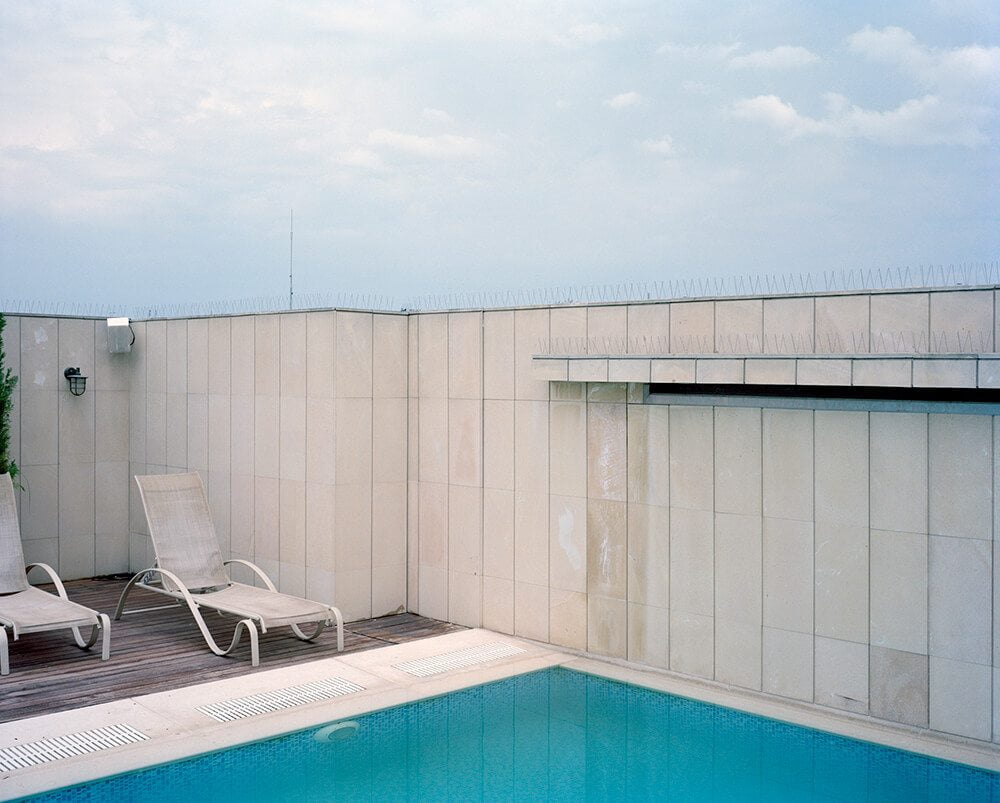INTERVIEW
Thriving Art in Testing Times
WITH KOSTAS KAPSIANIS
An interview with Kostas Kapsianis
“In times where society and humanity are being tested, there is more space for art to thrive. Perhaps in a utopian society, art would have no place to flourish.”
Kostas Kapsianis won our ‘URBAN LIFE’ theme with an image ripe with intrigue – presenting a strange paradox that our judge Peter Funch described as cinematic, and having a deadpan humor.
Keen to learn more, we posed some questions to Kostas, asking him about that image, his working practice, and how the current social and economic challenges in his home country of Greece affect his photography, and the wider art ecosystem….
(Banner image: from the series Bliss)
Hi Kostas. Congratulations on winning our ‘Urban Life’ theme. Our jury noted the irregularity in this Christmas tree sitting a million miles away from the picture-postcard setting one might imagine, decorated and cared-for, juxtaposed into empty surroundings, devoid of life. How did you react to those comments?
Thank you for choosing my work among others. I believe that interpreting a picture can only be a versatile process. The recipient’s point of view over a work of art often inspires and encourages the artist. I found Life Framer’s comments on my picture fruitful and well placed.
The image is from the series ‘Bliss’ – compositions of your home country of Greece, in which we see clean, man-made compositions and manicured nature. High walls and shuttered windows. Each image bereft of human life. Can you tell us a little bit more about the series? How it came about, and what the title ‘Bliss’ means to you?
When Greece entered the period of the economical crisis, I felt that many concepts, perceptions and values that were created in the past within an economic prosperity, were exposed. Often circumstances redefine and expound diversely those values. The following text regarding my project “Bliss” is to give you clarity on what “Bliss” means to me:
“Privacy equals isolation. Withdrawal within the walls. Concrete and closed gates against any likely or unlikely invasion. Thus people,
neighborhood, community and society became undesirable. We replaced nature with lawn. We abandoned timeless values greedily, for social and economic mobility – critical thinking, human measure, community – building nouveau-riche mansions, split-level houses, fortresses and walls.
We closed ourselves inside so as not to see or be seen; to secure our wealth but also to hide the bareness of our soul and spirit. We abandoned the communal; we stopped being citizens. We separated ourselves from the Others, the dirty ones, the strangers. No one was to disturb our peace. Security above all. Yet in this enclosed world each one is on his own, the illegal rules, we are paranoid and permanently threatened. And when the faucet of luxury shuts down we are left alone, destitute as always.”
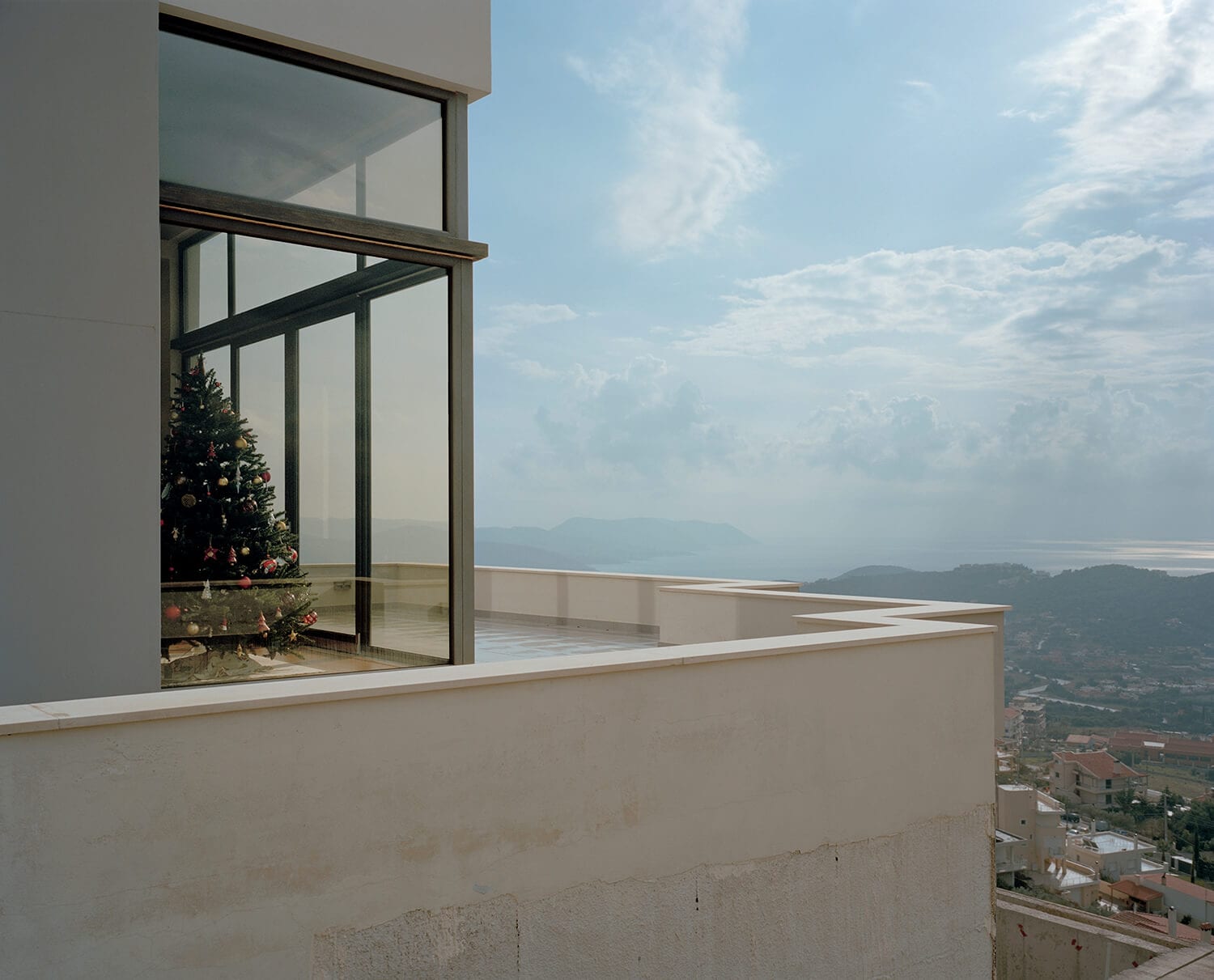 Kostas’ winning ‘URBAN LIFE’ image, from his series Bliss
Kostas’ winning ‘URBAN LIFE’ image, from his series Bliss
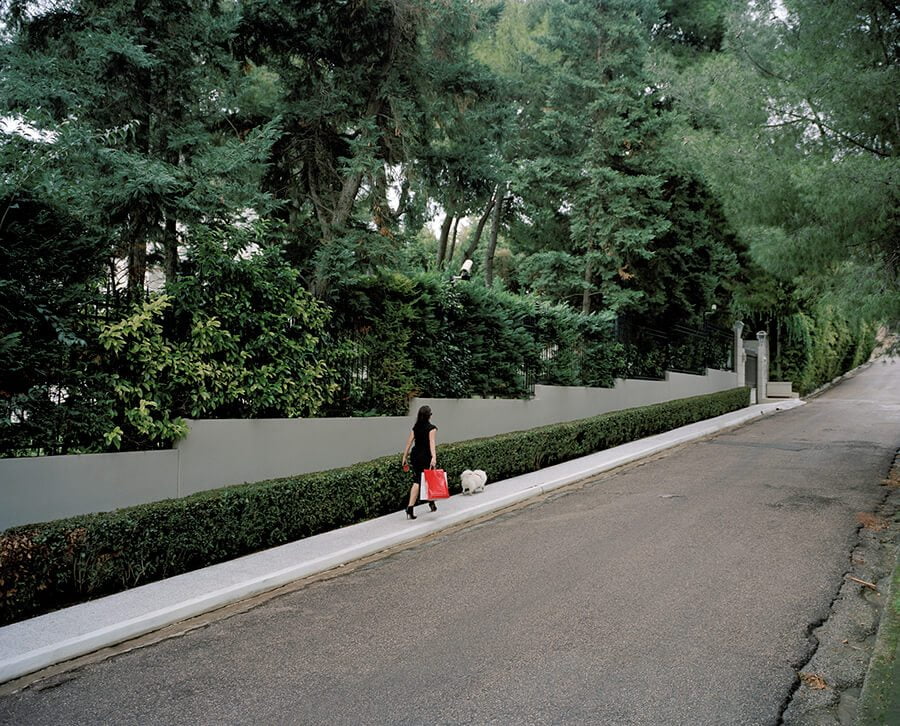 From the series Bliss
From the series Bliss
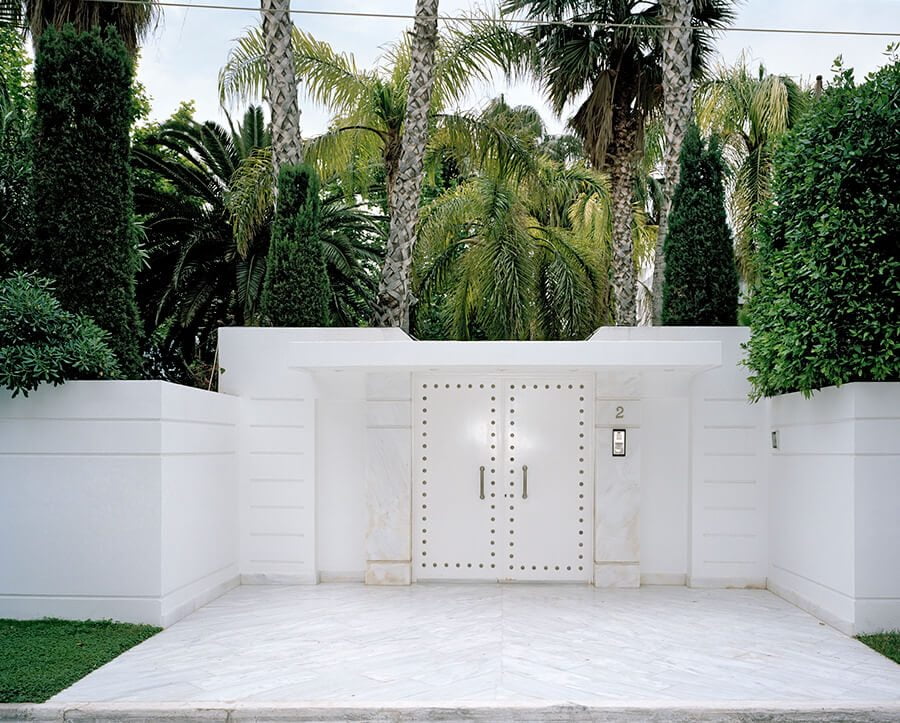 From the series Bliss
From the series Bliss
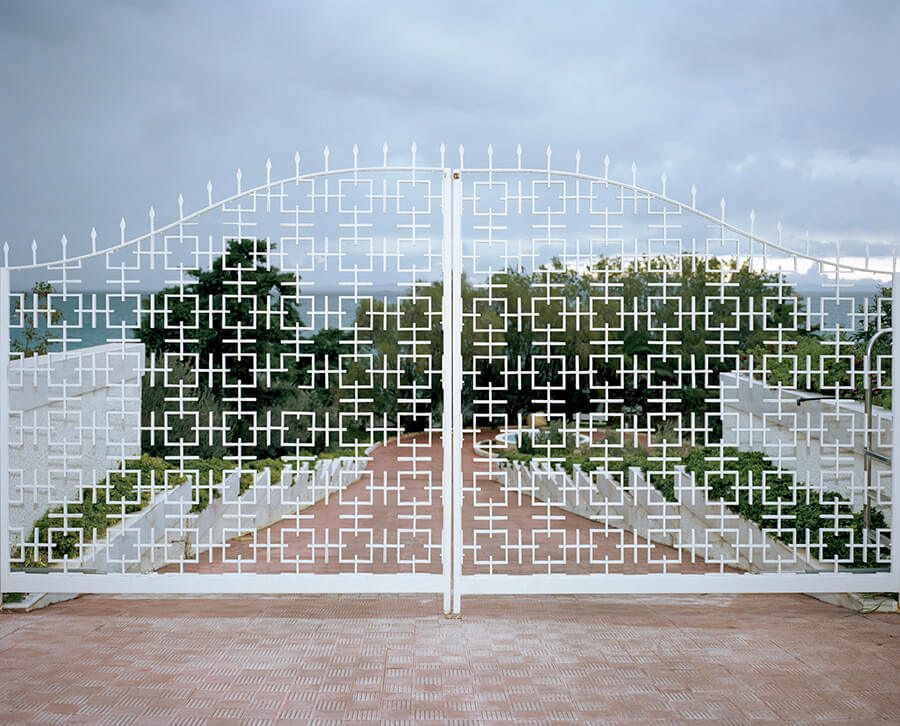 From the series Bliss
From the series Bliss
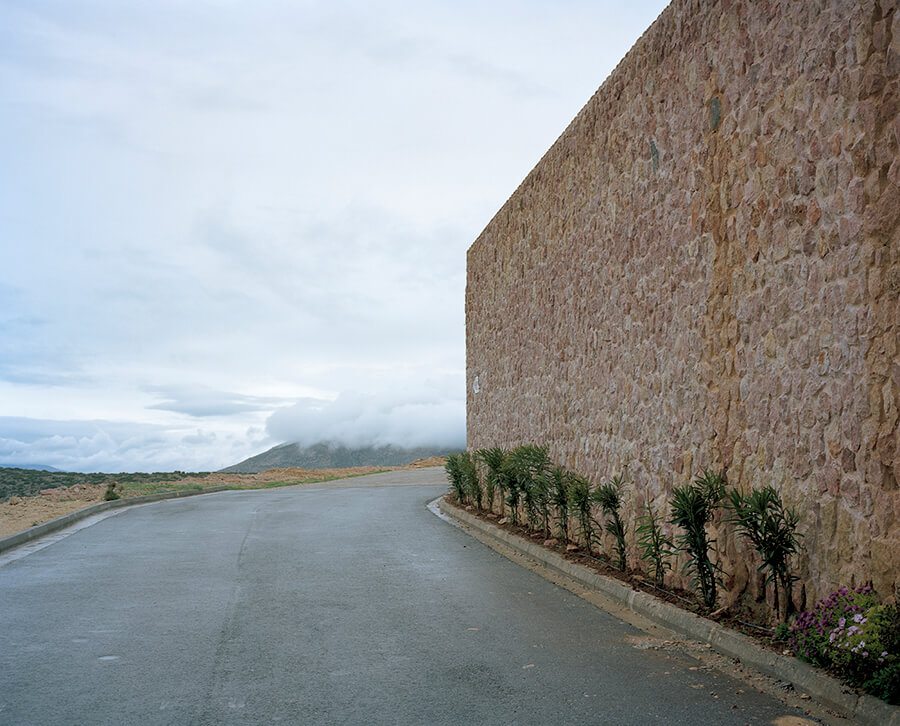 From the series Bliss
From the series Bliss
My introduction to your work actually came through ‘A Common Story’ – a more recent body of work in which your journey through the Greek countryside, documenting the landscape and its people. While both series share a sense of quiet reflection, there’s a warmth to ‘A Common Story’ that’s missing in the clinical images of ‘Bliss’. You show lives and places that are hard perhaps, but full of humanity. Was this distinction a conscious one? Perhaps to document two sides of Greece?
I wouldn’t say that Greece has two sides, as I believe nothing and no one can be limited between two concepts. In life, everything is multifaceted, complex and cannot be described in defined terms. As many thoughts occupy my mind, I find the photographic medium suitable, in order to express them and as this may seem a bit provocative, the truth is that I never start a project with certain intentions but it’s usually something more intuitive. It’s my personal opinion that the photographer, after all, photographs his own self.
There was one image in particular from ‘A Common Story’ that struck me, of a single, graffiti covered pillar stood in any empty field (below). It’s so rich with potential interpretation – of history and modernity, of hardship, frustration and decline. Of defiance. Can you tell us a little bit more about it? And is there an image from the series that you’re most proud of?
Your comments concerning this specific image are well suited, without being limited in absolute terms. When I express myself into words in order to interpret a picture, the process itself somehow weakens the image.
In my opinion, there are no perfect and favorite pictures. I am working under the sense of a project and that forces me not to chase the perfect picture, but one that will help me in the coherence and narration of storytelling.
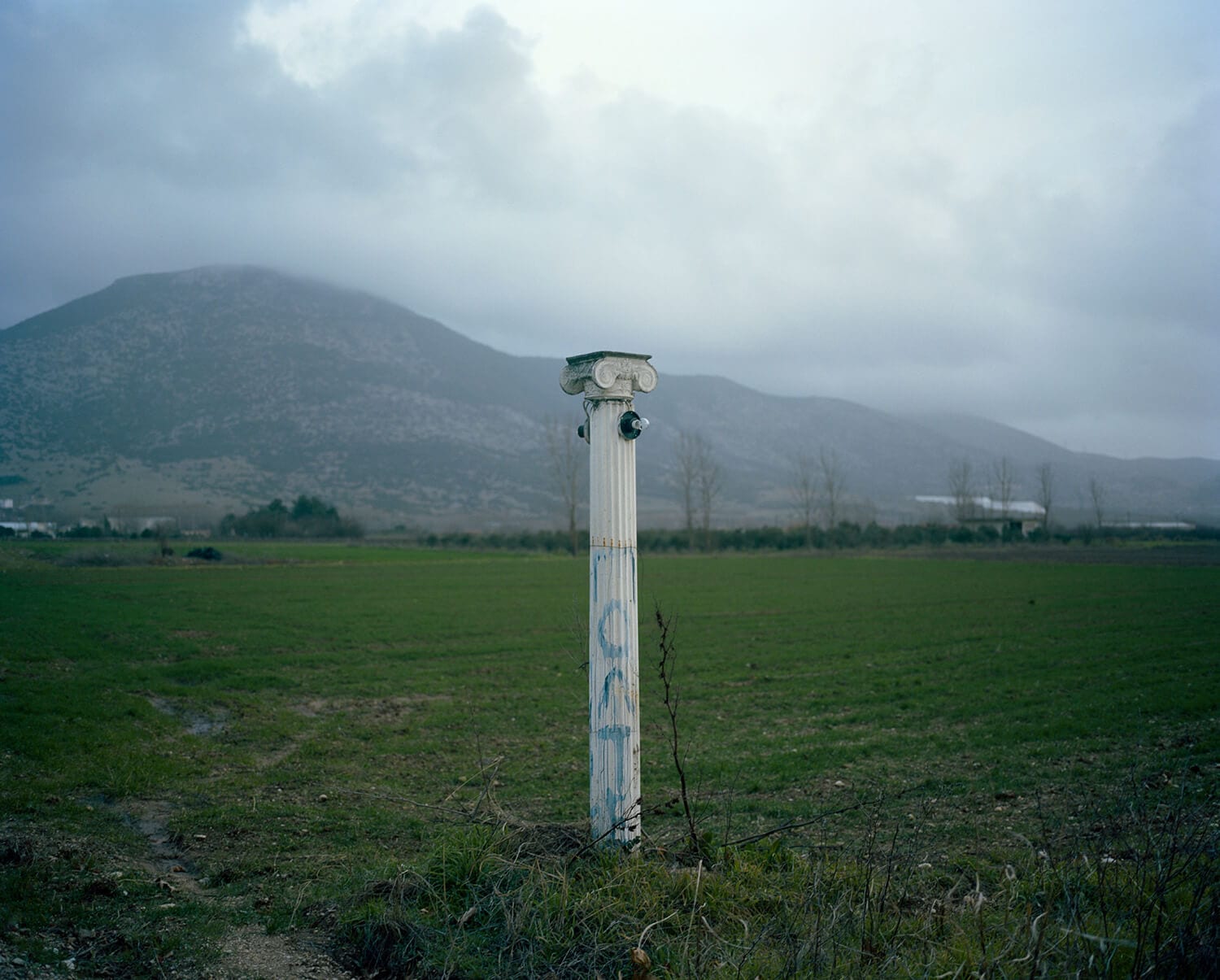 From the series A Common Story
From the series A Common Story
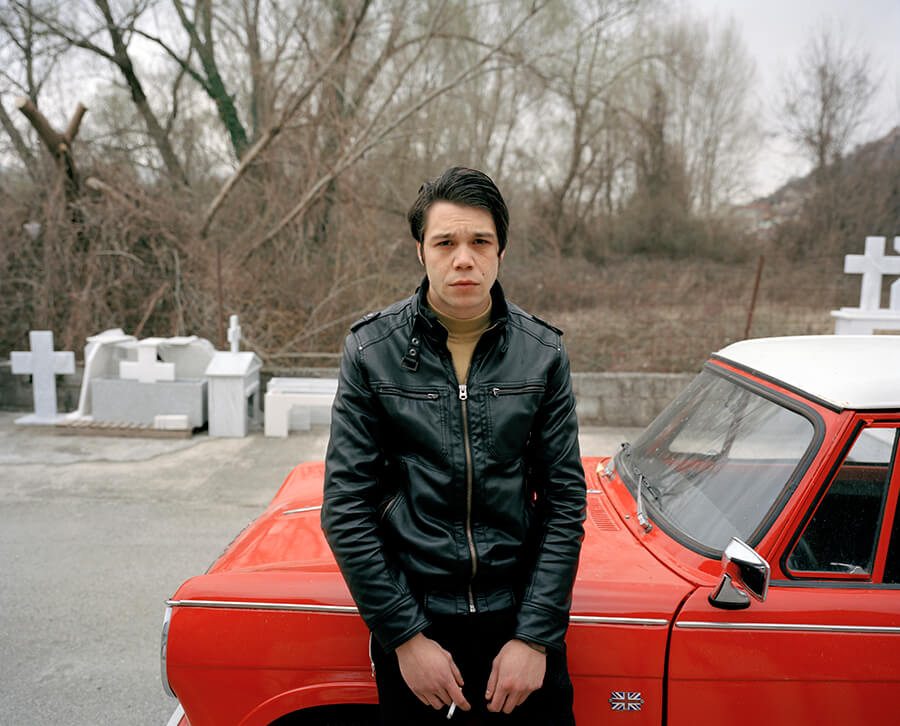 From the series A Common Story
From the series A Common Story
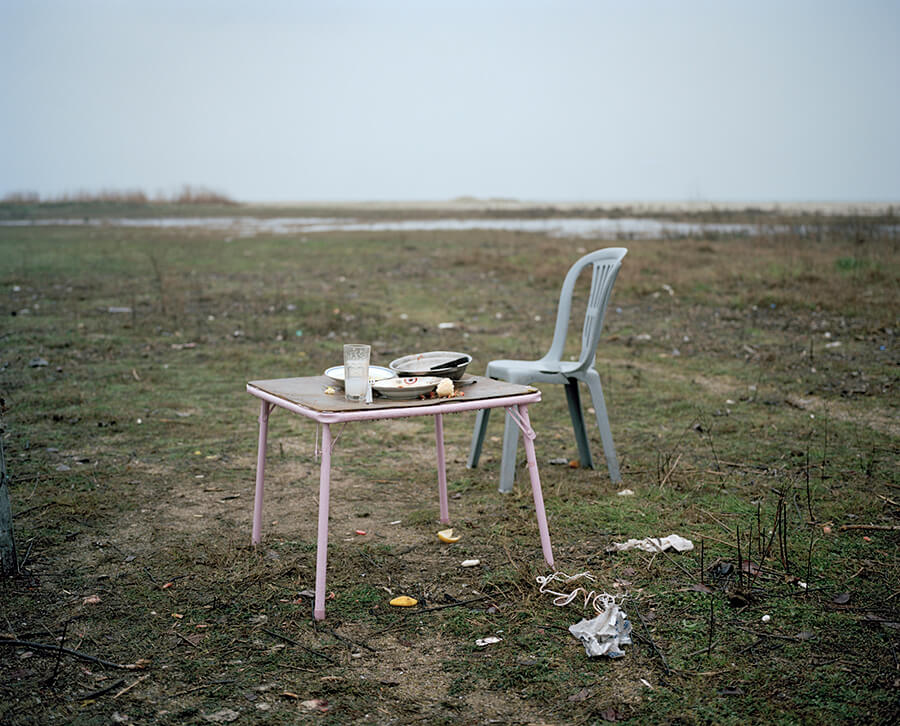 From the series A Common Story
From the series A Common Story
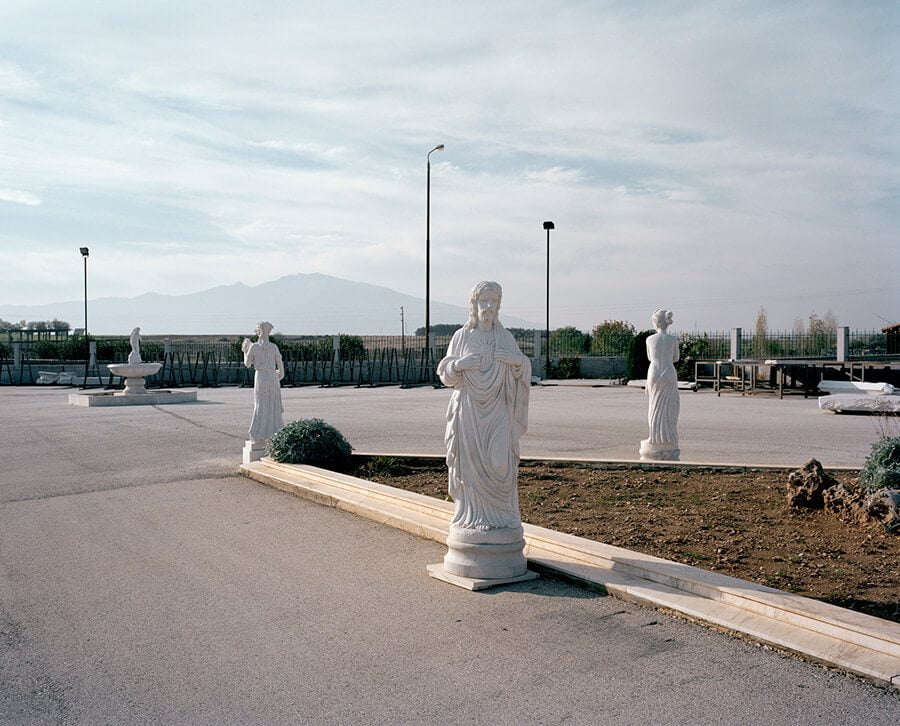 From the series A Common Story
From the series A Common Story
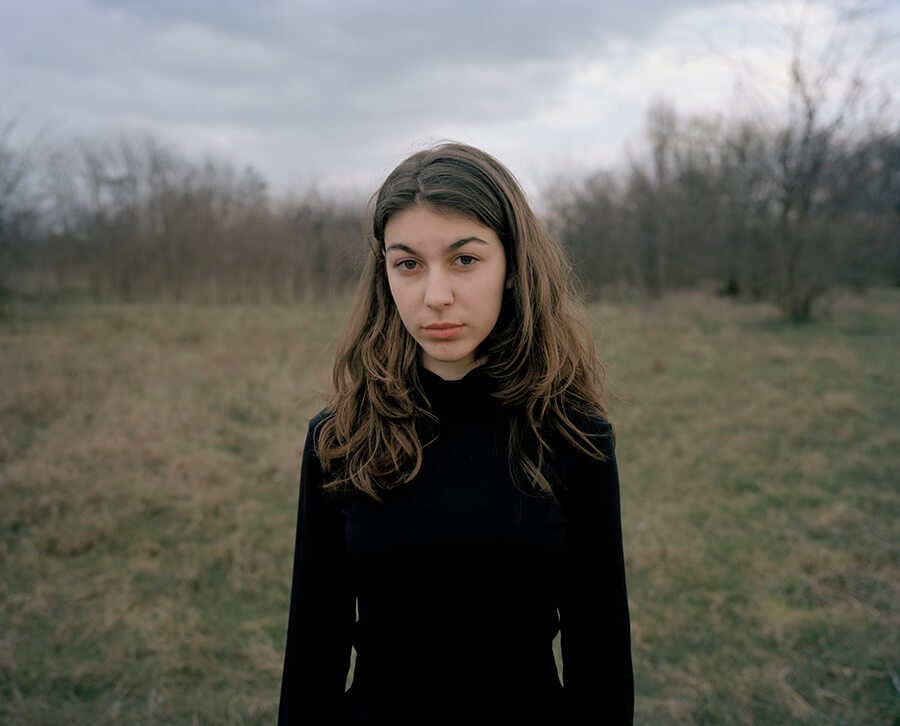 From the series A Common Story
From the series A Common Story
The recent economic hardship and migrations through Greece are well documented, and the country makes an indelible mark on your work. What is it like as an artist in Greece these days? Has creativity thrived or been suppressed? And is it important for you to show a different side to the country than that documented in the press?
In times where society and humanity are being tested, there is more space for art to thrive. Perhaps in a utopian society, art would have no place to flourish. Art owes its existence to the concerns and challenges that life presents. This social, economic, cultural crisis in Greece prompts us to think and to express ourselves. There are countless ways and forms of conveying a thought.
Has it been a conscious decision to focus all of your work on Greece? You’ve exhibited in many countries, but it seems that you always turn your lens to your homeland…
What helps me work and express myself through the photographic medium is the combination of travel and discovery. Photography is a lonely journey and going on the road helps me discover new scenery, people and their stories. I am interested in humans and the environment that surrounds them. As a man who lives in a metropolis, the Greek countryside has been something I’ve always carried with me through my father’s stories.
You’re a founding member of the collective “Depression Era” / KOLECTIV8 – can you tell us a little more about the background to this and your missions as a collective? How important is collaboration to you in what is often deemed an individual pursuit?
“Depression Era / KOLECTIV8 “ was created by artists, photographers, architects, etc. whose aim is to talk about the crisis in Greece. It has an autonomous nature and works democratically in terms of expression. An important part of its core has to do precisely with the fact that we can talk about something that concerns us through various aspects.
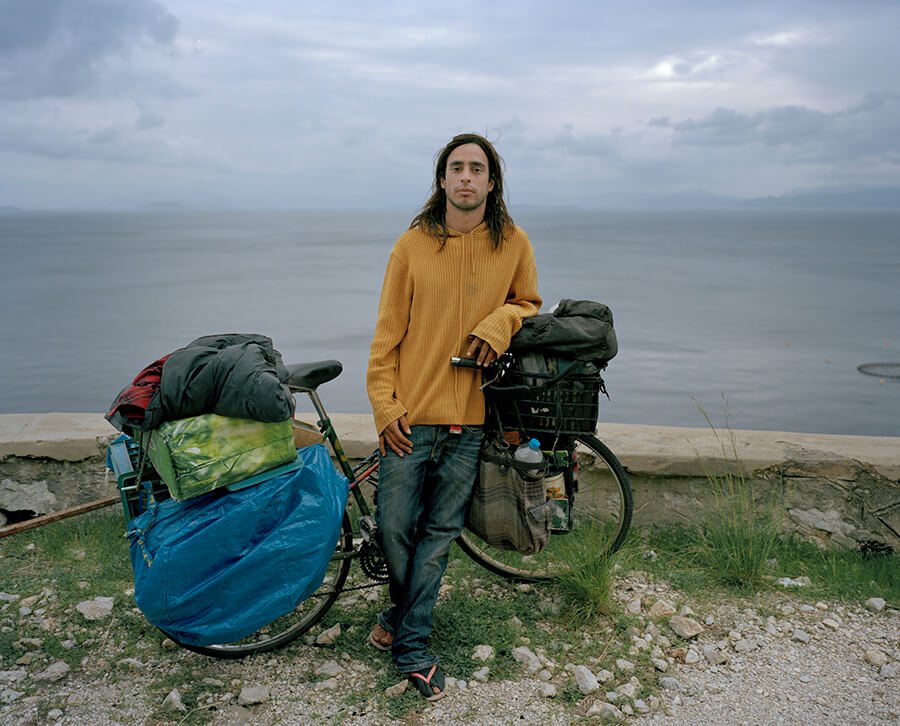 From the series Athens Riviera
From the series Athens Riviera
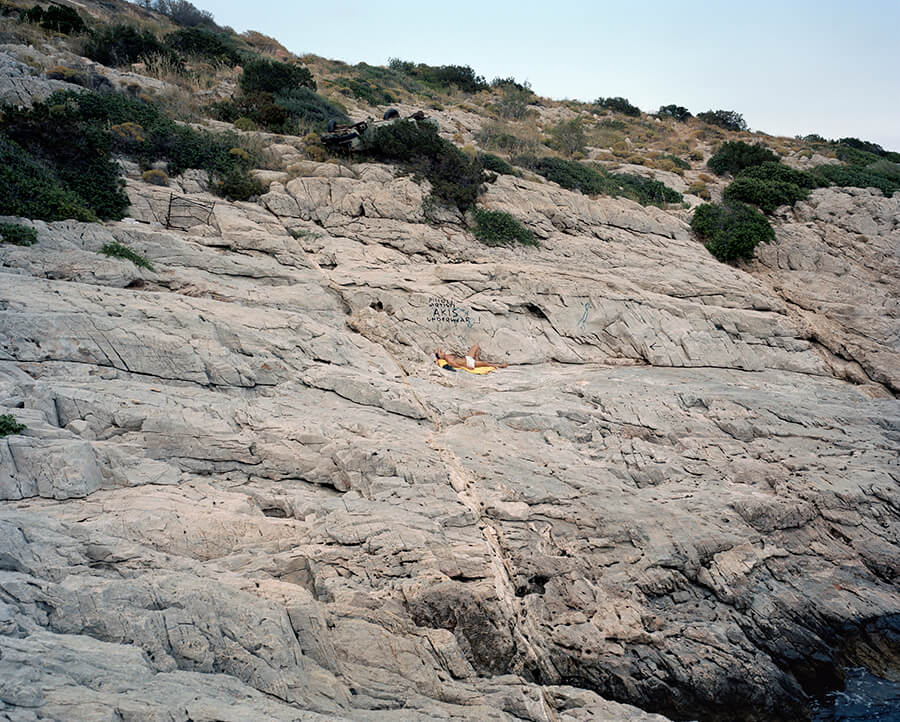 From the series Athens Riviera
From the series Athens Riviera
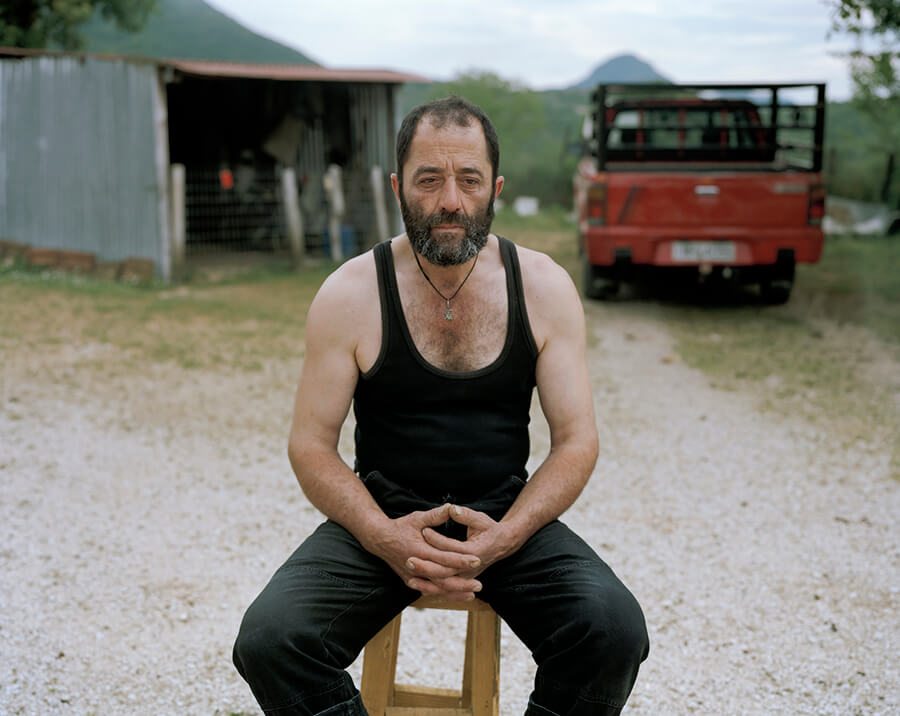 From the series A Common Story
From the series A Common Story
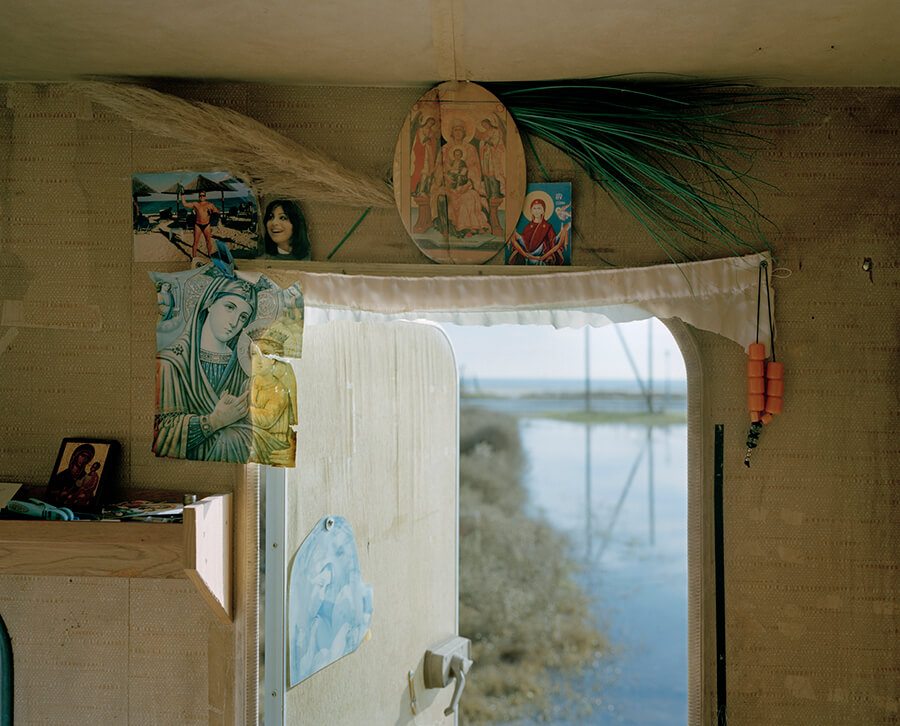 From the series A Common Story
From the series A Common Story
I’ve read that you shoot almost exclusively with large format, appreciating the deliberateness and space for reflection. With this in mind, what role do the more ‘instantaneous’ platforms you use such as Instagram and Tumblr play?
It’s common to criticize instantly anything unfamiliar and new, either in negative or appreciative terms. I take my time on those matters and new circumstances. Only time will tell whether these means have beneficial purpose or not. My personal belief is that nothing is random and everything happens for a reason. For all I know, the existence of these platforms may waver the despotic attitude photography until now has been subjected to.
And finally Kostas, what are you working on at the moment? What can we expect from you next?
Life in the countryside is still something that occupies my mind, and for the past two years I have been working on a project that takes place in Peloponnese. A project that narrates the life of man in the countryside as well, thus we can talk about the same subject in different ways.
All images © Kostas Kapsianis
Follow him on Instagram: @kapsianis8 and see more at www.kostaskapsianis.com
